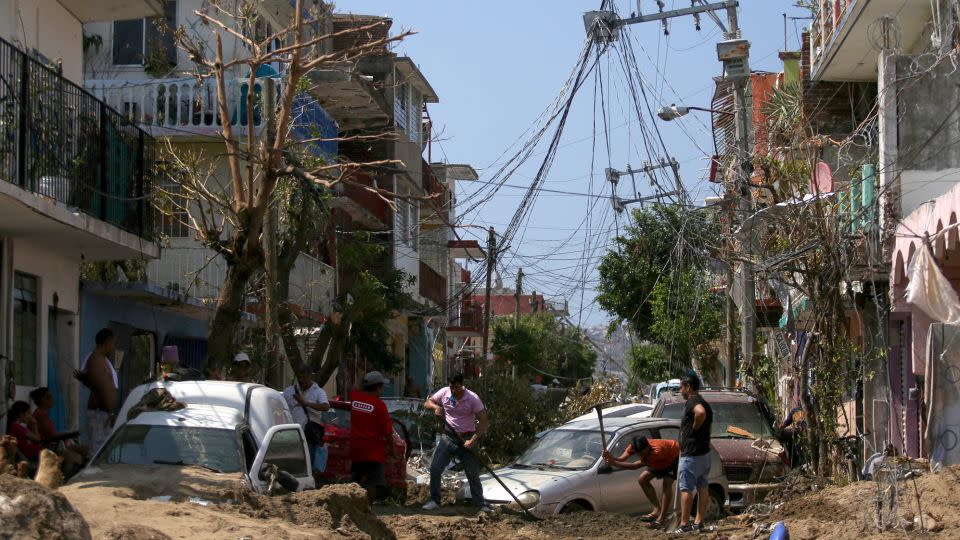The most recent empirical evidence clearly demonstrates that the world is significantly off track when it comes to addressing the climate crisis. According to the UN, it has been revealed that even if countries fulfill all their current climate promises, the level of planet-heating pollution in 2030 will still be 9% higher than it was in 2010.
This discrepancy highlights a significant disparity between the trajectory in which nations are heading and what scientific data indicates is necessary in order to prevent the most catastrophic effects of climate change.
As per the Intergovernmental Panel on Climate Change, in order to meet the internationally-agreed objective of limiting global warming to 1.5 degrees Celsius above pre-industrial levels, emissions must be reduced by 45% by the end of this decade compared to 2010. A 9% increase signifies that this target is far from being achieved.
Climate scientists believe that the 1.5-degree threshold is critical beyond which climate change impacts, such as more frequent and severe heatwaves, droughts, and storms, will become increasingly challenging for both humans and ecosystems to adapt to.
The findings come from a report published by the United Nations Framework Convention on Climate Change (UNFCCC), which annually analyzes individual national plans to reduce emissions, known as Nationally Determined Contributions (NDCs), of the 195 countries that have signed the Paris Climate Agreement.
Despite the surge in urgent warnings from climate scientists, emissions continue to rise. Nonetheless, this year’s NDC Synthesis report provides a glimmer of hope. It suggests that the upward trend in emissions is gradually slowing down, and emissions could peak and begin to decline before the decade ends.
Projections indicate that emissions in 2030 will be 2% lower than they were in 2019 and 3% lower than the estimated levels for 2025, according to the report.
This progress is mainly due to some countries recently elevating the ambition levels of their climate plans, resulting in a marginal improvement. In comparison to previous years’ figures, countries were on course to raise emissions by 11% by 2030 compared to 2010, and in the year before that, the figure was 14%. However, these steps are considered to be incremental progress, according to Simon Stiell, executive secretary of the UNFCCC.
The report’s release prompted UN Secretary General António Guterres to declare that “the world remains massively off track to limiting global warming to 1.5 degrees Celsius and avoiding the worst of climate catastrophe.” He added, “Global ambition stagnated over the past year and national climate plans are strikingly misaligned with the science. As the reality of climate chaos pounds communities around the world — with ever fiercer floods, fires, and droughts — the chasm between need and action is more menacing than ever.”


A second UN report, also released on Tuesday, analyzed countries’ 2050 plans to achieve net zero emissions, where they aim to significantly reduce carbon emissions and eliminate any remaining planet-heating pollution from the atmosphere.
The report indicated that if all long-term strategies were implemented on time, these countries’ emissions could be approximately 63% lower in 2050 compared to 2019. However, the report emphasized that many net zero targets remain uncertain and have extended deadlines, postponing critical action into the future.
Tuesday’s findings follow the UN’s Global Stocktake report released in September, which confirmed that governments are not moving fast enough to avoid catastrophic levels of warming. It warned that there was “a rapidly narrowing window to raise ambition and implement existing commitments.”
Stiell stated that these findings should spur bolder action at the UN’s upcoming COP28 climate summit in Dubai. He mentioned, “Every fraction of a degree matters, but we are severely off track. COP28 is our time to change that.”
During COP28, countries will conduct the global stocktake exercise to assess progress on climate action, which will feed into the next round of more ambitious national climate action plans due to be submitted to the UN in 2025.
For more CNN news and newsletters, create an account at CNN.com.


